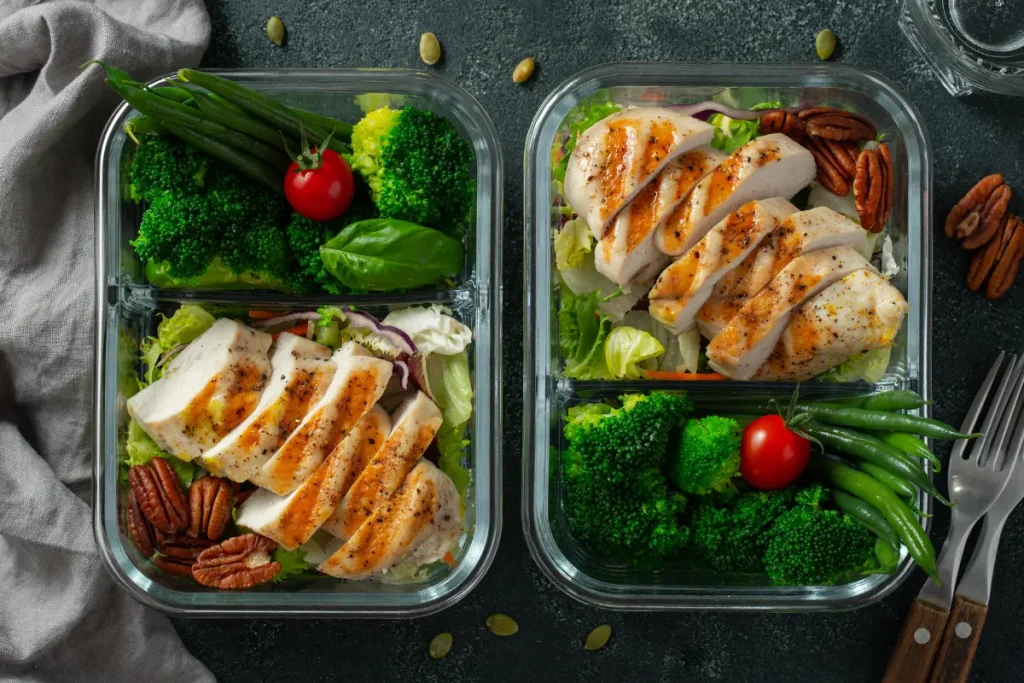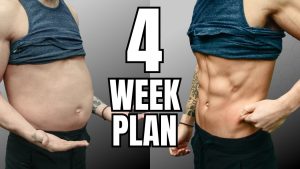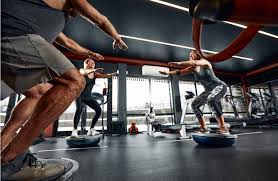Proper nutrition is important for maximizing workout performance and ensuring effective recovery. To optimize this process, general guidelines suggest eating a pre-workout meal 1 to 3 hours before exercise, and a recovery meal within 60 to 90 minutes after. This post-exercise meal should aim to include about 20 to 40 grams of high-quality protein to effectively stimulate muscle repair. A comprehensive review published in the Journal of the International Society of Sports Nutrition confirms this, concluding that the strategic intake of nutrients is crucial for optimizing the body’s response to exercise and achieving fitness goals.
During a workout, your body draws heavily on its stored energy reserves. The primary fuel source for your muscles is glycogen, which is the stored form of carbohydrates. As you exercise, these glycogen stores are depleted. The physical stress of the activity also creates small micro-tears in your muscle fibers, which is a normal part of the process that leads to muscle growth.
After the workout is complete, your body enters a critical recovery phase. Its immediate priorities are to replenish the glycogen it has used and to repair the damaged muscle tissue. Supplying the right nutrients helps this process happen efficiently. Without adequate fuel, recovery can be slow, leading to prolonged fatigue and diminished results from your training efforts.
What is Proper Nutrition?
Supplying your body with the right balance of fuel and building blocks to handle the demands of physical activity is the essence of proper nutrition. Health experts at Harvard Health note that proper nutrition keeps energy levels up and protects against many age-related illnesses like heart disease, cancer, and diabetes. This principle becomes even more critical for an active individual, as a well-fueled body performs better, adapts faster, and is less prone to injury. The foundation of this approach lies in understanding two key categories of nutrients: macronutrients and micronutrients.
The energy for your workouts and the materials for recovery come from macronutrients, which are the nutrients your body needs in large amounts. These include carbohydrates, proteins, and fats. Carbohydrates are the most important fuel source, providing the readily available energy required to power muscle contractions during exercise. Protein is essential for recovery, as it supplies the amino acids needed to repair the muscle tissue that is broken down during a workout. Healthy fats also play a key role, serving as an energy source for longer-duration activities and supporting vital functions like hormone production, which is crucial for growth and adaptation.
Equally important are micronutrients, which are the vitamins and minerals your body requires in smaller quantities but are essential for supporting the processes that make exercise possible. They act as catalysts for countless reactions, including converting food into usable energy and repairing cellular damage. Minerals like iron are critical for transporting oxygen to your working muscles, while electrolytes such as sodium and potassium are vital for muscle function and hydration. Without adequate micronutrients, your body’s ability to perform and recover can be significantly compromised.
Benefits of Fueling Your Workouts
Properly fueling your body around your workouts provides significant advantages that go far beyond simply curbing hunger. Strategic pre- and post-exercise nutrition directly enhances performance, accelerates muscle recovery, and ensures your body can effectively adapt to your training. This leads to better results over time, allowing you to train harder, get stronger, and reduce the risk of injury. The main benefits of proper nutrition before and after exercising are listed below.
- Boost Energy and Performance: Consuming carbohydrates before a workout tops off your muscle glycogen stores, which is your body’s most accessible source of energy. This ensures your muscles have the fuel they need to perform at a high intensity for a longer duration. Studies published in sports medicine journals consistently show that pre-exercise carbohydrate intake can delay fatigue and improve endurance performance during activities like running and cycling.
- Increase Muscle Growth and Strength: Consuming adequate protein after a workout is critical for repairing the muscle fibers stressed during exercise. This repair process, known as muscle protein synthesis, is what leads to stronger, bigger muscles. A large meta-analysis in the British Journal of Sports Medicine found that protein supplementation after resistance training significantly enhances gains in both muscle size and strength. For optimal results, consuming 20-40 grams of high-quality protein post-workout maximally stimulates this muscle-building response in major muscle groups worked, such as the legs, back, and chest.
- Prevent Muscle Breakdown: Intense or prolonged exercise can sometimes cause the body to break down muscle tissue for energy, a process known as catabolism. Eating a meal that contains both carbohydrates and protein before a workout can help prevent this. The readily available energy from carbohydrates spares your muscle protein, ensuring it is used for its primary function of contraction rather than being sacrificed for fuel. This is particularly important for preserving lean body mass during weight loss or long endurance events.
- Replenish Glycogen Stores: After a workout, your muscle glycogen is depleted. Consuming carbohydrates within the first 60 to 90 minutes post-exercise is crucial for rapidly restocking these stores. The International Society of Sports Nutrition states that combining carbohydrates with protein in your post-workout meal can accelerate this glycogen resynthesis even more effectively than consuming carbohydrates alone. This ensures your muscles are refueled and ready for your next training session, which is vital for athletes who train daily.
What Foods are Recommended for Pre Workouts?
The ideal pre-workout meal focuses on easily digestible carbohydrates to provide energy, with a small amount of protein to protect muscle tissue. Foods that are high in fat or fiber should be limited right before exercise as they slow down digestion and can cause stomach discomfort. Consuming your meal 1 to 3 hours before your workout allows enough time for digestion, ensuring the energy is available when you need it. Some excellent choices include oatmeal, bananas, and whole-wheat toast. More suggestions are provided in the following list.
- Oats: A small bowl (about 1/2 cup dry) is a fantastic source of complex carbohydrates that provide a slow, steady release of energy.
- Bananas: One medium banana is packed with easily digestible carbohydrates and potassium, an electrolyte important for muscle function.
- Whole-Wheat Toast: One or two slices provide carbohydrates for fuel. Top it with a thin layer of jam for quick energy or about a tablespoon of peanut butter for protein if you have more time to digest.
- Greek Yogurt: A single-serving container (around 5-6 ounces) offers a good balance of carbohydrates and protein.
- Apples with Peanut Butter: One medium apple provides simple carbohydrates, while one tablespoon of peanut butter adds protein for sustained fuel.
- Fruit Smoothies: Blend 1-1.5 cups of fruits like berries and banana with a liquid base like milk or water. Research shows that liquid meals can be digested more quickly, making them a great option closer to your workout time.
- Brown Rice with Chicken: An excellent meal for 2-3 hours before a workout. A serving of about 1/2 cup of brown rice with a 3-ounce portion of grilled chicken provides sustained carbs and lean protein.
- Sweet Potatoes: One small to medium-sized sweet potato is a rich source of complex carbohydrates for lasting energy.
- Energy or Granola Bars: One bar is a convenient option. Look for bars that are higher in carbohydrates (20-30g) and lower in fat and fiber.
- Dried Fruit: A small handful (about 1/4 cup) of raisins or dates offers a concentrated source of simple carbohydrates for a quick energy spike.
What to Eat for Post Workouts?
After a workout, the primary goal is to replenish energy stores and provide the necessary building blocks for muscle repair. The ideal post-workout meal contains a combination of high-quality protein to stimulate muscle protein synthesis and carbohydrates to restock depleted glycogen. Consuming this meal within 60 to 90 minutes after your session, often called the “anabolic window,” can optimize recovery. Excellent food choices that accomplish this include chocolate milk for its ideal carb-to-protein ratio, or a combination like grilled chicken with quinoa and vegetables.
- Chocolate Milk: About 8-12 ounces is often cited as a near-perfect recovery drink. A study in the International Journal of Sport Nutrition and Exercise Metabolism found it effective due to its ideal ratio of carbohydrates to protein.
- Grilled Chicken Breast: A 3-4 ounce serving (about the size of a deck of cards) provides 25-30 grams of lean protein for muscle repair.
- Quinoa: A serving of 1 cup (cooked) offers a complete protein and complex carbohydrates to replenish glycogen and provide amino acids.
- Salmon: A 3-4 ounce fillet is rich in protein and omega-3 fatty acids, which research suggests may help reduce post-exercise muscle soreness.
- Eggs: Two to three whole eggs provide 12-18 grams of highly bioavailable protein to support recovery.
- Cottage Cheese: One cup of low-fat cottage cheese can deliver over 25 grams of slow-digesting protein, supplying your muscles with a steady stream of amino acids.
- Sweet Potatoes: One medium to large sweet potato is a fantastic source of complex carbohydrates to effectively replenish your glycogen stores.
- Avocado: Half of a medium avocado provides healthy fats and potassium, an important electrolyte lost through sweat.
- Berries: A serving of 1 cup is loaded with antioxidants that can help combat exercise-induced oxidative stress.
- Nuts and Seeds: A handful (about 1 ounce) of almonds or 2 tablespoons of chia seeds offers protein, healthy fats, and micronutrients.
- Tuna: A 3-ounce can of light tuna packed in water is a convenient, high-protein option providing over 20 grams of protein.
- Legumes (Beans and Lentils): A serving of 1 cup (cooked) provides an excellent plant-based source of both carbohydrates and protein for a recovery meal.
When Should You Drink a Protein Shake?
A protein shake can be a highly convenient way to consume the high-quality protein needed for muscle repair, but its timing depends largely on your overall diet and goals. Although the concept of an “anabolic window” suggests a protein shake must be consumed immediately post-workout, modern research indicates this window is wider than once believed. A meta-analysis published in the Journal of the International Society of Sports Nutrition concluded that the total daily protein intake is the most important factor in muscle adaptation, rather than precise nutrient timing. For most people, as long as you consume adequate protein throughout the day, the exact timing of a shake is less critical.
But for those engaged in intense training or athletes training multiple times a day, strategic timing can be more beneficial. Consuming a protein shake post-workout can kick-start the recovery process when whole foods are not practical or desired. Also, some studies suggest that pre-workout protein can also be effective. Research in the journal Medicine & Science in Sports & Exercise found that a small amount of protein consumed right before a workout can stimulate muscle protein synthesis.
A protein shake is a supplement to your diet and the best time to drink one is when it helps you meet your daily protein targets, whether that is immediately after a workout for convenience, as a meal replacement, or to boost the protein content of a meal.
What Not to Consume Before, During, and After a Workout
Just as important as knowing what to eat is understanding what to avoid. Consuming the wrong foods at the wrong times can lead to sluggishness, stomach discomfort, and can even hinder recovery process. The key is to avoid foods that are difficult to digest before your workout and to steer clear of items that offer little nutritional value for recovery afterward.
Before a workout, your primary goal is to have readily available energy without digestive distress. Avoid foods that are high in fat or excessive in fiber. Greasy or fried foods, heavy cream sauces, and large portions of meat slow down digestion significantly, which can leave you feeling heavy and lethargic. Similarly, consuming large amounts of high-fiber foods like raw broccoli, large salads, or heavy bran cereals right before exercise can cause gas and bloating. This is because both fat and fiber require more effort and blood flow to digest, diverting resources away from your working muscles.
During most standard workouts that last under 90 minutes, water is all your body needs. You should avoid consuming solid food and sugary drinks like soda or undiluted fruit juice. Your body is not primed for complex digestion while exercising, and eating can lead to cramps or nausea. Sugary drinks can cause a rapid spike in blood sugar followed by a sharp crash, which can leave you feeling more tired than when you started. For very long endurance activities, specialized sports drinks or gels are designed for easy absorption, but they are unnecessary for the usual gym sessions.
After your workout, it is crucial to avoid foods that interfere with recovery. Ultra-processed junk foods like candy, chips, and greasy fast food may be tempting, but they lack the high-quality protein and complex carbohydrates your body needs to repair muscle and replenish glycogen. Alcohol should also be avoided, as it can cause dehydration, impair muscle protein synthesis, and disrupt the quality of your sleep, which is essential for the recovery process.
Lastly, be mindful of the common tendency to overestimate the calories burned during a workout and use it as a license to overeat. A single high-calorie treat can easily cancel out the caloric deficit from your exercise. It is more effective to view food as fuel for your body’s performance and recovery, not as a reward for having completed a session.



